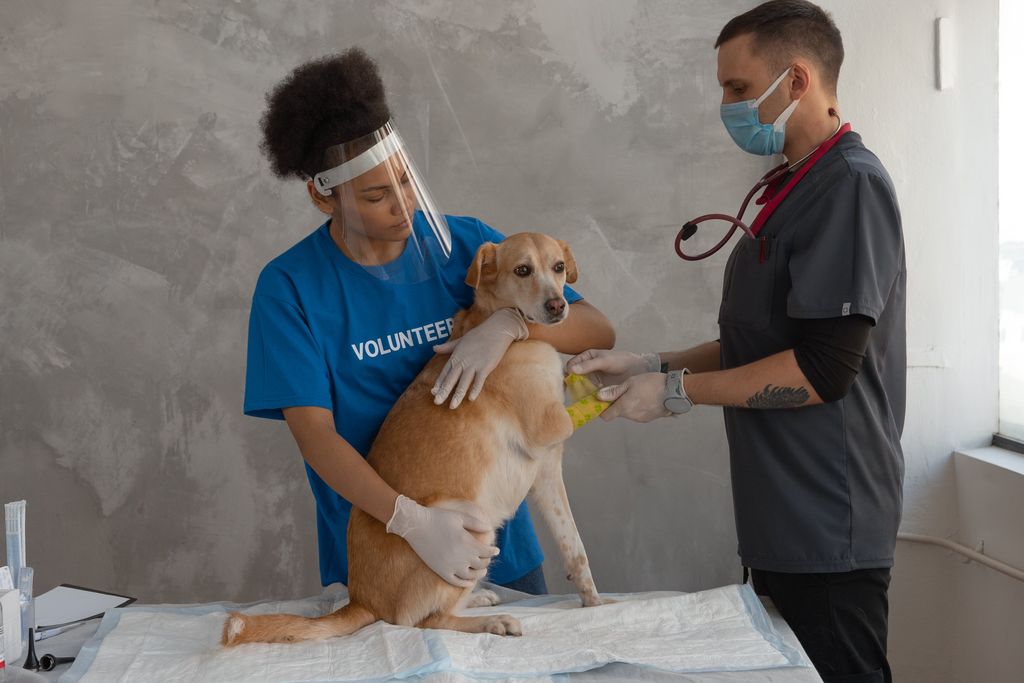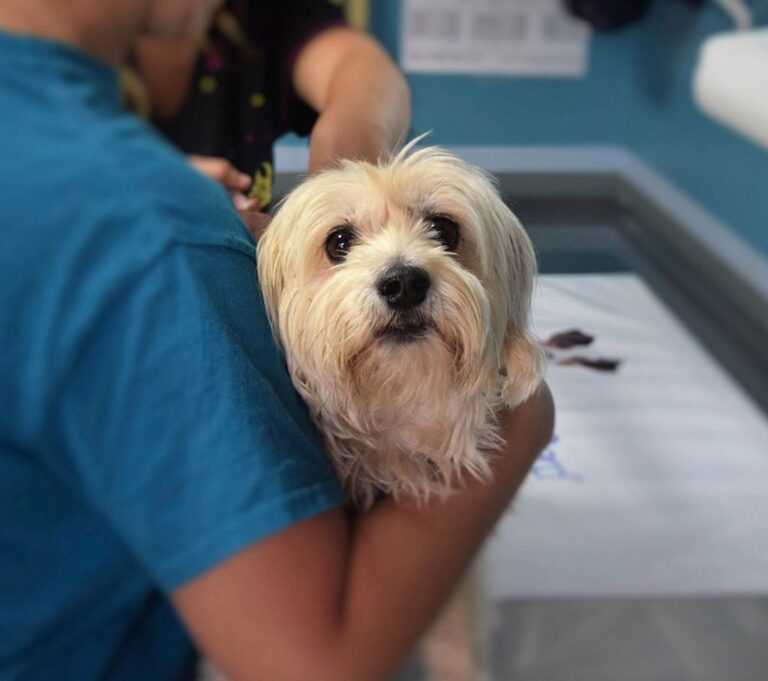The Importance of Regular Dog Check-ups
Regular veterinary check-ups are an essential aspect of responsible pet ownership, contributing significantly to the health and happiness of our beloved pets. In this article, we’ll delve into the importance of regular veterinary check-ups for pets.
Key Takeaways
- Regular veterinary check-ups help prevent health issues in pets.
- They enable early detection of diseases and health issues.
- Check-ups contribute to maintaining optimal health in pets.
- They ensure that pets receive proper vaccinations.
- Choosing the right veterinarian is crucial for quality pet care.
Why Regular Dog Check-ups are Essential

Preventing Health Issues
Maintaining a lean body condition throughout growth and adulthood is an important way to prevent many long-term illnesses. With appropriate management and early detection of heart or arthritic conditions, your pets can live a happy, normal life. Regular check-ups allow veterinarians to identify potential health issues before they become serious problems, ensuring a longer and healthier life for your pet. Ensure your pet’s vaccinations are up-to-date to protect them from common diseases and maintain herd immunity in the community. Dental issues are common in pets and can lead to various health problems. A vet check-up includes a dental examination to catch and address problems early. Discussing your pet’s diet with the veterinarian can help ensure they are getting the proper nutrition they need.
Detecting Early Signs of Disease
Regular veterinary check-ups play a crucial role in detecting early signs of disease in our furry friends. Many illnesses in pets can be asymptomatic or exhibit subtle symptoms that may go unnoticed by their owners. However, veterinarians are trained to identify these signs, often before they become severe. Early detection can make a substantial difference in the outcome of treatment and the overall well-being of our pets.
During a check-up, veterinarians may use various diagnostic tools, such as stethoscopes, to listen for heart murmurs or arrhythmias that could indicate underlying heart disease. They also carefully monitor weight changes, as significant weight loss or gain over time may be a sign of an underlying health issue. Additionally, veterinarians are skilled at detecting tumors or other abnormalities that may not be easily noticeable at home.
By bringing our pets for regular check-ups, we can ensure that any potential health issues are identified early on, allowing for prompt treatment and a better prognosis. It’s always better to be proactive when it comes to our pets’ health!
Maintaining Optimal Health
Regular Veterinary Check-Ups: Make a commitment to schedule regular veterinary check-ups for your pet. These routine visits are essential for preventive care, vaccinations, and early detection of any health issues. Consult with your vet to establish a customized wellness plan tailored to your pet’s needs.
Balanced Nutrition: Evaluate and enhance your pet’s diet. Ensure they are receiving a nutritionally balanced and species-appropriate diet. Consult with your veterinarian to determine the right type and amount of food based on factors like age, breed, and health condition.
Weight Management: If your pet is overweight, work with your veterinarian to develop a weight management plan. Obesity can lead to various health problems, so it’s important to help your pet maintain a healthy weight.
Exercise: Just like humans, pets benefit greatly from regular exercise. Create an exercise routine that suits your pet’s age, breed, and health condition. Whether it’s daily walks, playtime, or interactive toys, keeping your pet active contributes to overall well-being.
Dental Care: Oral health is a vital component of overall well-being. Make a commitment to a regular dental care routine, including tooth brushing, dental chews, and professional cleanings as recommended by your veterinarian. Good oral health can prevent various health issues.
Mental Stimulation: Mental stimulation is crucial for your pet’s well-being. Engage them in activities that challenge their mind, such as puzzle toys, training sessions, or interactive games. Providing mental stimulation helps prevent boredom and promotes a happy, healthy pet.
Ensuring Proper Vaccinations
Regular veterinary check-ups are essential for ensuring proper vaccinations for your pet. Vaccinations are crucial in preventing many infectious diseases in pets. By keeping your pet’s vaccinations up to date, you are protecting them from potentially life-threatening illnesses. During a vet check-up, your veterinarian will assess your pet’s vaccination status and provide any necessary booster shots. They will also offer recommendations for preventive care tailored to your pet’s specific needs, such as flea and tick control and heartworm prevention.
Choosing the Right Veterinarian

Finding a Trustworthy and Experienced Veterinarian
When it comes to finding a trustworthy and experienced veterinarian, recommendations from friends or local pet communities can be invaluable. Choosing the right veterinarian in Staten Island is crucial for the well-being of your pet. Look for a veterinarian who not only has the necessary qualifications but also demonstrates a genuine passion for animal care. Reading reviews and seeking recommendations can help you make an informed decision. Consider factors such as the clinic’s location, hours of operation, and range of services offered. A convenient location and flexible hours can make it easier for you to prioritize your pet’s health without disrupting your own busy schedule.
Considering Location and Accessibility
When choosing a veterinarian, it’s important to consider factors such as the clinic’s location, hours of operation, and the range of services they offer. A convenient location and flexible hours can make it easier for us to prioritize our pet’s health without disrupting our own busy schedule. It’s also helpful to gather recommendations from friends or local pet communities to make an informed decision.
Checking for Specialized Services
When looking for a veterinarian, it’s important to consider if they offer any specialized services that your dog may need. Some dogs require specific treatments or procedures due to their breed, age, or health condition. Specialized services can include orthopedic surgery, dermatology, cardiology, or even alternative therapies like acupuncture or chiropractic care. It’s worth asking the veterinarian if they have experience in these areas and if they have the necessary equipment and facilities. Finding a veterinarian who can provide specialized services ensures that your dog receives the best possible care tailored to their unique needs.
Reading Reviews and Recommendations
When it comes to choosing the right veterinarian for your furry friend, reading reviews and recommendations can be incredibly helpful. We rely on the experiences of other pet owners to guide our decision-making process. Online platforms and forums are great places to find honest opinions and feedback about different veterinarians in our area. We pay attention to factors such as the veterinarian’s expertise, communication skills, and the overall satisfaction of their clients. It’s important to consider multiple reviews and take them into account when making our final choice.
Preparing for a Dog Check-up

Gathering Medical History and Records
When preparing for your dog’s check-up, it’s important to gather all the necessary medical history and records. This includes information about your dog’s previous vaccinations, any past illnesses or injuries, and any medications they may be currently taking. Having this information ready will help the veterinarian get a better understanding of your dog’s overall health and make more informed decisions during the check-up.
Bringing Necessary Supplies
When preparing for your dog’s check-up, it’s important to gather all the necessary supplies to ensure a smooth and efficient visit. Collar and leash are essential for safely transporting your dog to the veterinarian’s office. Additionally, don’t forget to bring your dog’s medical records and vaccination history. These documents provide important information about your dog’s health and help the veterinarian make informed decisions. It’s also a good idea to bring some treats or toys to keep your dog calm and distracted during the check-up.
Preparing Your Dog Mentally
Preparing your dog mentally for a check-up is just as important as gathering their medical history and bringing necessary supplies. Dogs can sense our emotions, so it’s crucial to create a calm and positive environment. Here are a few tips to help your furry friend feel more at ease:
- Stay relaxed: Take deep breaths and maintain a calm demeanor to reassure your dog that everything is okay.
- Positive reinforcement: Reward your dog with treats or praise during the check-up to associate it with positive experiences.
- Familiarize with handling: Gently touch and handle your dog’s paws, ears, and mouth to familiarize them with the vet’s examination.
- Bring comfort items: Consider bringing their favorite toy or blanket to provide a sense of familiarity and comfort.
Remember, a relaxed and mentally prepared dog will have a smoother check-up experience, leading to a happier and healthier pup!
Scheduling the Appointment
Once you’ve gathered all the necessary medical history and records, and prepared your dog mentally for the check-up, it’s time to schedule the appointment. Booking in advance is recommended to ensure you get a convenient time slot. Most veterinarians have busy schedules, so it’s best to plan ahead. Give them a call or use their online booking system to secure your spot.
If you’re a first-time visitor, you may need to provide some basic information about your dog, such as their breed, age, and any specific health concerns. This will help the veterinarian prepare for the check-up and provide personalized care.
Remember to mark the appointment date on your calendar and set a reminder. It’s easy to forget amidst our busy lives, but regular check-ups are crucial for your dog’s well-being.
What to Expect During a Dog Check-up

Physical Examination
During the physical examination, the veterinarian will carefully assess your dog’s overall health and look for any signs of illness or abnormalities. They will perform a thorough inspection of your dog’s body, including their eyes, ears, skin, coat, and muscles. The veterinarian will check for any unusual growths, bumps, or lumps that could indicate cancer. They will also examine your dog’s teeth and gums to ensure they are healthy and free from any dental issues. Additionally, the veterinarian will check your dog’s vital signs, such as their pulse, respiratory rate, and temperature. This comprehensive examination allows the veterinarian to get a complete picture of your dog’s health and detect any potential problems early on.
Vaccinations and Preventive Medications
Vaccinations are crucial in preventing many infectious diseases in pets. Regular veterinary visits ensure that your pet’s vaccinations are up to date, protecting them from potentially life-threatening illnesses. In addition to vaccines, veterinarians can provide preventive care recommendations tailored to your pet’s specific needs, such as flea and tick control, heartworm prevention, and dental care.
Preventive Care for Your Pet
At The Melrose Vet, we provide comprehensive preventive pet care for your furry friend. Our expert veterinarians offer personalized medical care for your pet, from routine check-ups to specialized treatments. We use the latest techniques and technologies to provide your pet with the best quality care possible. We have convenient online services, such as our virtual pet health portal, allowing you to access your pet’s medical records and information from any device.
Peace of Mind
Knowing that your pet is in good health brings peace of mind and strengthens the bond between you and your furry companion.
Preventive Care
Regular check-ups allow veterinarians to identify potential health issues before they become serious problems, ensuring a longer and healthier life for your pet.
Dental Health
Dental issues are common in pets and can lead to severe health issues if left untreated. Regular veterinary check-ups include dental examinations, cleanings, and advice on at-home dental care. Maintaining your pet’s oral health can prevent pain, infections, and complications.
Parasite Testing and Prevention
Parasites like fleas, ticks, and intestinal worms can cause discomfort and transmit diseases to your pet. Regular veterinary visits ensure that your pet is free from parasites and receive appropriate preventive medications.
One important aspect of regular veterinary check-ups is the peace of mind they offer. Knowing that your pet is healthy and receiving proper care alleviates worry and allows you to enjoy a fulfilling and worry-free relationship with your furry companion.
Here are some key points to consider:
- Preventive Care: Regular check-ups allow veterinarians to identify potential health issues before they become serious problems, ensuring a longer and healthier life for your pet.
- Vaccinations: Ensure your pet’s vaccinations are up-to-date to protect them from common diseases and maintain herd immunity in the community.
- Dental Health: Dental issues are common in pets and can lead to various health problems. Regular check-ups include dental examinations and recommendations for proper oral care.
- Parasite Prevention: Regular check-ups include screenings for parasites such as fleas, ticks, and worms. Preventive measures can be taken to keep your pet parasite-free.
Remember, taking care of your pet’s health is essential for their overall well-being and happiness.
Dental Care and Oral Health
Regular veterinary check-ups include dental examinations, cleanings, and advice on at-home dental care. Maintaining your pet’s oral health can prevent pain, infections, and complications related to heart and kidney diseases. A veterinarian can offer guidance on your pet’s diet and nutrition needs, ensuring they receive the right balance of nutrients for their age, size, and activity level. Weight management is vital, as obesity can lead to various health problems in pets. Regular check-ups provide an opportunity to discuss your pet’s dental health and receive professional advice on maintaining their oral hygiene.
Common Health Issues in Dogs

Obesity and Weight Management
Weight management is vital, as obesity can lead to various health problems in pets. Regular check-ups provide an opportunity to discuss your pet’s dietary habits and make necessary adjustments. Here are some tips for weight management:
- Consult with your veterinarian to determine the right type and amount of food based on factors like age, breed, and health condition.
- Implement portion control, monitor treats, and engage in regular exercise to keep your pet fit.
- Create an exercise routine that suits your pet’s age, breed, and health condition.
Remember, maintaining a healthy weight is crucial for your pet’s overall well-being.
Allergies and Skin Conditions
When it comes to allergies and skin conditions, prevention is key. Regular grooming and a healthy diet can help keep your dog’s skin in good condition. If your dog does develop an allergy or skin issue, it’s important to seek veterinary advice. Your vet can recommend appropriate treatments and help identify the underlying cause of the problem. In some cases, allergy testing may be necessary to determine the specific allergens affecting your dog. Remember, a happy and healthy dog starts with taking care of their skin!
Joint and Mobility Problems
When it comes to our furry friends, joint and mobility problems can be a real pain. These issues can make it difficult for our dogs to move around and enjoy their daily activities. But don’t worry, there are steps we can take to help alleviate their discomfort and improve their quality of life.
First and foremost, it’s important to maintain a healthy weight for our dogs. Excess weight can put extra strain on their joints and exacerbate any existing problems. Regular exercise and a balanced diet can go a long way in keeping our pups fit and agile.
In addition to weight management, supplements can also be beneficial for dogs with joint and mobility issues. Glucosamine and chondroitin are commonly used to support joint health and reduce inflammation. It’s always best to consult with a veterinarian before starting any new supplements.
Lastly, physical therapy can be a game-changer for dogs with joint and mobility problems. Just like humans, dogs can benefit from exercises and therapies that improve strength, flexibility, and range of motion. A professional therapist can create a customized plan to address your dog’s specific needs.
Remember, our furry friends rely on us to keep them happy and healthy. By taking proactive steps to address joint and mobility problems, we can ensure that our dogs can continue to enjoy an active and pain-free life.
Dental and Oral Health Issues
When it comes to our furry friends’ dental and oral health, regular check-ups are crucial. A veterinarian can examine their teeth and gums, looking for early signs of dental problems. Maintaining your pet’s oral health can prevent pain, infections, and complications related to heart and kidney diseases.
In addition to dental examinations, a vet check-up may also include cleanings and advice on at-home dental care. Here are some other important aspects of dental and oral health to consider:
- Nutrition and Weight Management: A veterinarian can offer guidance on your pet’s diet and nutrition needs, ensuring they receive the right balance of nutrients for their age, size, and activity level. Weight management is vital, as obesity can lead to various health problems in pets.
- Behavioral Evaluation: Changes in behavior may indicate underlying health issues. A vet check-up provides an opportunity to address any concerns and seek guidance on behavioral changes.
Remember, a healthy mouth leads to a healthier pet overall. So don’t forget to prioritize your furry friend’s dental and oral health during their regular check-ups!
Conclusion
Regular veterinary check-ups are a fundamental aspect of responsible pet ownership. They provide early disease detection, preventive care, dental health maintenance, nutrition guidance, behavior management, and essential care for senior pets. These visits are an investment in your pet’s well-being, ensuring they lead a happy and healthy life. Remember, your veterinarian is not only a healthcare provider but also a valuable partner in your pet’s journey. So, make it a priority to schedule regular check-ups and give your furry friend the love and care they deserve!
Frequently Asked Questions
How often should I take my dog for a check-up?
Healthy adult dogs should generally visit a veterinary clinic about once a year for check-ups, vaccinations, and other preventative care.
Why are regular veterinary check-ups important?
Regular veterinary check-ups are important for early disease detection, preventive care, dental health maintenance, nutrition guidance, behavior management, and essential care for senior pets.
How can I find a trustworthy veterinarian?
You can find a trustworthy veterinarian by considering factors such as experience, location, specialized services, and reading reviews and recommendations.
What should I bring to a dog check-up?
You should bring your dog’s medical history and records, necessary supplies, and ensure your dog is mentally prepared for the appointment.
What happens during a dog check-up?
During a dog check-up, a physical examination is conducted, vaccinations and preventive medications are administered, parasite testing and prevention measures are discussed, and dental care and oral health are addressed.
What are some common health issues in dogs?
Some common health issues in dogs include obesity and weight management, allergies and skin conditions, joint and mobility problems, and dental and oral health issues.






